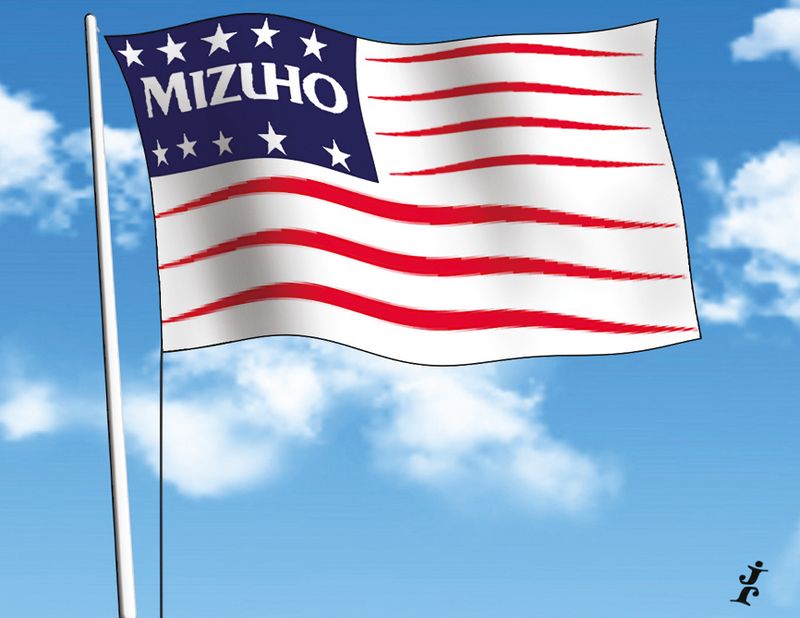Climbing the table
Breaking into a market historically dominated by US bulge-bracket institutions isn’t easy, but Mizuho managed that feat in 2023. For its persistent effort, steady advice and increased market share, Mizuho is IFR’s North America Investment-Grade Corporate Bond House of the Year.
![]()
In 2023, Mizuho made significant ground on a goal that has sometimes eluded its Japanese peers – establishing itself in the market for US high-grade corporate bonds.
Japanese lenders have had a long history of trying to enter the lucrative world of US investment banking, notably when some took advantage of the 2008 global financial crisis to go bargain-shopping for assets of major US banks. This approach has not always yielded success.
That’s why the steady buildout of Mizuho’s flagship investment-grade business stands out. The Japanese bank has had to fight to grow its market share, competing with bulge-bracket institutions like JP Morgan, Citigroup and Bank of America.
In previous years, Mizuho has lingered on the fringes of the top 10 banks. But in 2023, it reached sixth in the league table for North America investment-grade corporate bonds, jumping from ninth in 2022.
“It's much harder to take market share within the top 10,” said Moshe Tomkiewicz, head of investment-grade debt capital markets. “So what we're seeing is a result of a continuous strategy of being in front of our clients on a long-term basis.”
That gradual climb was years in the making, ever since Mizuho acquired Royal Bank of Scotland’s US investment-grade franchise in 2015, taking dozens of bankers and multiplying its client relationships.
And under the leadership of Michal Katz, who joined Mizuho in 2019 as the head of investment and corporate banking for the Americas, the Japanese lender has gone from strength to strength. Its growth in private placements, commercial paper and other areas shows how the bank has also looked to expand the breadth of its offerings in US debt capital markets.
“There has been a different trajectory and vision for the firm in banking, and I could not sit here with a straight face and tell you that we were not the beneficiary of [Katz's efforts],” said Victor Forte, head of investment-grade capital markets and syndicate.
In a statement of its improved standing, the Japanese bank earned a major role on a jumbo M&A bond with drugmaker Amgen, serving as active bookrunner for the ninth-largest high-grade bond transaction of all time.
Though Amgen did not bring the biggest offering of 2023 – that distinction was earned by Pfizer – a chance to lead its US$24bn bond was highly coveted by underwriters as only a few banks could serve as the main leads. The transaction’s smooth execution and US$90bn order book was a testament to how Mizuho could bat with the best of Wall Street.
Major blue-chip clients knew they could lean on Mizuho to guide them through the volatile market of 2023, a year dominated by uncertainty around the US economy and monetary policy.
For example, Mizuho led the brief revival of callable corporate bonds at the start of the year in the form of three-year non-call one structures. These types of bonds gained popularity among issuers who wanted to benefit from the possibility of a US Federal Reserve pivot.
The Japanese bank served as joint bookrunner and billing and delivery agent for AT&T’s US$1.75bn issuance in February, the largest three-year non-call one offering of 2023. That was a rare level of size for a structure that can generate pushback among investors suspecting they are not paid enough by the borrower for the option to redeem the bonds early.
Mizuho was also a bookrunner on Ford Motor’s reintroduction to the high-grade market only days after receiving its second investment-grade rating. As one of the most keenly awaited offerings of 2023, the US$2.75bn bond from the Michigan-based company was a tremendous success, recording a more than five-times subscribed order book.
Like the best banks in the business, Mizuho showed it had the sophistication and vision to look beyond US shores to raise funding, too.
The bank led all parts of IBM’s globe-trotting issuance in January, which included a US$3.25bn component in its home currency. The multinational tech company reached across multiple geographies and currencies to also take out considerable funding from euros and sterling. This approach helped ensure very small new issue concessions across the entire US$8.9bn-equivalent transaction.
To see the digital version of this report, please click here
To purchase printed copies or a PDF of this report, please email shahid.hamid@lseg.com in Asia Pacific & Middle East and leonie.welss@lseg.com for Europe & Americas.






















